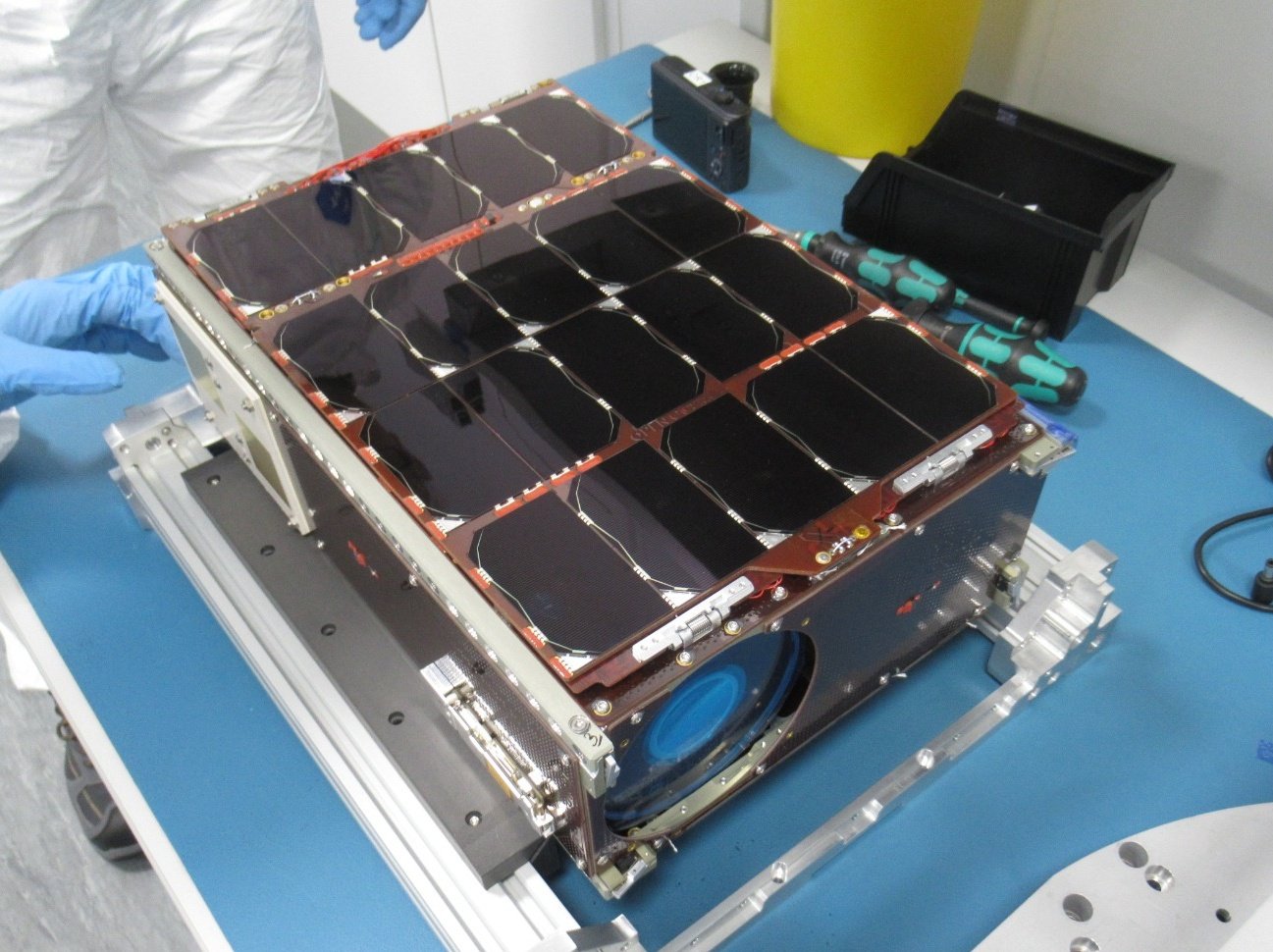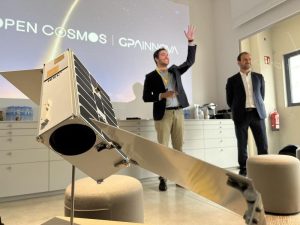
The 6U nanosatellite – which will monitor weather and environmental changes, along with the sustainable use of natural resources – was deployed into sun-synchronous orbit by Exolaunch’s EXOpod Nova deployer, launched as part of SpaceX’s Transporter-6 mission.
Open Cosmos was contracted by the Institut d’Estudis Espacials de Catalunya (IEEC) in 2021 to build the first earth observation satellite of its NewSpace strategy to develop the space sector.
On board is an optical payload and advanced on-board processing that will allow it to take pictures anywhere in the world from it’s sun synchronous polar orbit.
The company is currently proceeding to commission the satellite:
???? SUCCESS ????
After successful launch from @SpaceX , successful deployment from the @Exolaunch deployer, we made first contact with our satellite yesterday evening. Telemetries are nominal, we are now on our way to commissioning the satellite.#menut #spacetechnology #newspace pic.twitter.com/7nE5ZB5Ban
— Open Cosmos (@Open_Cosmos) January 4, 2023
“We’re delighted to be launching MENUT,” said Aleix Megias, VP of Operations at Open Cosmos.
“The project will enable national and regional governments, as well as organisations to access insightful and actionable data from space from a revolutionary shared space infrastructure model. This wouldn’t be possible without partners that share our mission to make space data and infrastructure more accessible and it was great to work closely with Exolaunch to launch MENUT.”
Today we launch the satellite #Menut to monitor the climate emergency and sustainable use of natural resources as part of the #OpenConatellation. ????
You can see it live here at 14:56 UTC:https://t.co/mByQ0tkQZl— Rafael Jordá Siquier (@RafelJorda) January 3, 2023
The launch was SpaceX’s sixth dedicated ride-share mission and its first of 2023. Specifically, it was on a Falcon 9 launched from the Cape Canaveral Space Force Station in Florida on Tuesday.
In total there were 114 payloads on the flight, including CubeSats, microsats, picosats and orbital transfer vehicles.
The MENUT satellite will be part of Open Cosmos’s Open Constellation, which the company announced back in September 2022. The project, which is described as a shared satellite infrastructure, will be built and managed by Open Cosmos with the aim to provide data to address challenges around climate change. Essentially, entities that contribute satellites to the constellation gain access to the wider data.
Later this month, on board the scheduled first European launch of satellites – imminently due to take off from Cornwall – will be a research satellite from RHEA Group, which was also built in Oxfordshire by Open Cosmos.
Barcelona

Back in October the company – which also has offices in Porto – inaugurated new facilities in Barcelona, where it plans to invest – together with GPAINNOVA – in state-of-the-art laboratories for the manufacture of satellites.
“The space industry is in full revolution, and we hope that the investments that Open Cosmos is making in Barcelona will catalyze the growth of the entire ecosystem with ambitious tractor projects that will boost the entire industrial and technological fabric that exists,” said Rafel Jordá, founder of the company.
Founded in Barcelona in 2013, GPAINNOVA – specialising in surface metal finishing machinery – comprises a group of companies and brands including Steros GPA Innovative, DLyte, POWER INNOTECH and GPASEABOTS.
Pictured above is a model of the Menut satellite with Rafel Jordá, CEO of Open Cosmos, and Pau Sarsanedas, CEO of GPAINNOVA.
See also: Open Cosmos plans Open Constellation to mutualise climate change data







